International Community Development Profile: Felista Chotamasege Family in Tanzania
In this series, families in the Reaching Children’s Potential (RCP) Demonstration Program in Tanzania explain how their participation improves their lives. Global Volunteers’ RCP Program engages short-term volunteers to help parents deliver essential services improving health, eradicating hunger, and enhancing cognition – with the goal of eliminating child stunting in the Ukwega Ward and throughout Tanzania. Through RCP, families obtain the nutrition, health care, knowledge, technology, and encouragement needed to combat stunting, and to ensure their children can realize their full potential. The RCP Program is a child-focused, parent-driven, family-centered, and community-led comprehensive effort. It begins with pregnancy, and continues through the 18th birthday, with a focus on the first 1,000 days of life. Read Felista Chotamasege’s interview about the RCP Program here.
Felista, can you tell us a bit about where you and your husband are from and where you went to school? What do you do for a living?
I was born in another village called Ndiwili and my parents moved to Lulindi when I was very little, so I was raised here. My husband was born and raised here in Lulindi. Both of us studied through standard 7 here. Lulindi is an amazing place where there is fertile land and easy availability of water since there are many sources. Also, there are many shops and many needs can be met.
We farm like many families here. Our main crops are beans and corn. On a small scale, we also grow sweet potatoes, cassava, avocados, and bananas. I also sell sardines and cooking oil.
What is a normal day like for you, Felista?
I always wake up at 5:00 in the morning and take time to conduct some domestic activities before I go to the field. I spend most of my time in the field. I get water right outside my house since there is a community water tank there. I don’t usually have time for friends, but when I get time to relax, I always read my Bible and spend time with my children.
What can you tell us about your children?
Givaneth likes to play and read about science. Editha likes to draw. She draws pictures, colors them, and sticks them on the wall in our house. She is very bright and hard working. She is the girl whose picture is hanging in the meeting room at the RCP Center with her baby sister on her back. Joshua likes to play soccer. Loveness also likes sports. Joseph, who is ten months old, is still too young to tell. My husband chose all of their names.
Since the program started, my children have become very active and brighter than they were before. I want them to get enough education — as much as they want — and become better people in the future. I want them to have better jobs like teachers, nurses, doctors, or engineers. I hope one day they will be able to become what they want. I feel so happy and proud when I look at my family, especially my children, because they are always happy and healthy.
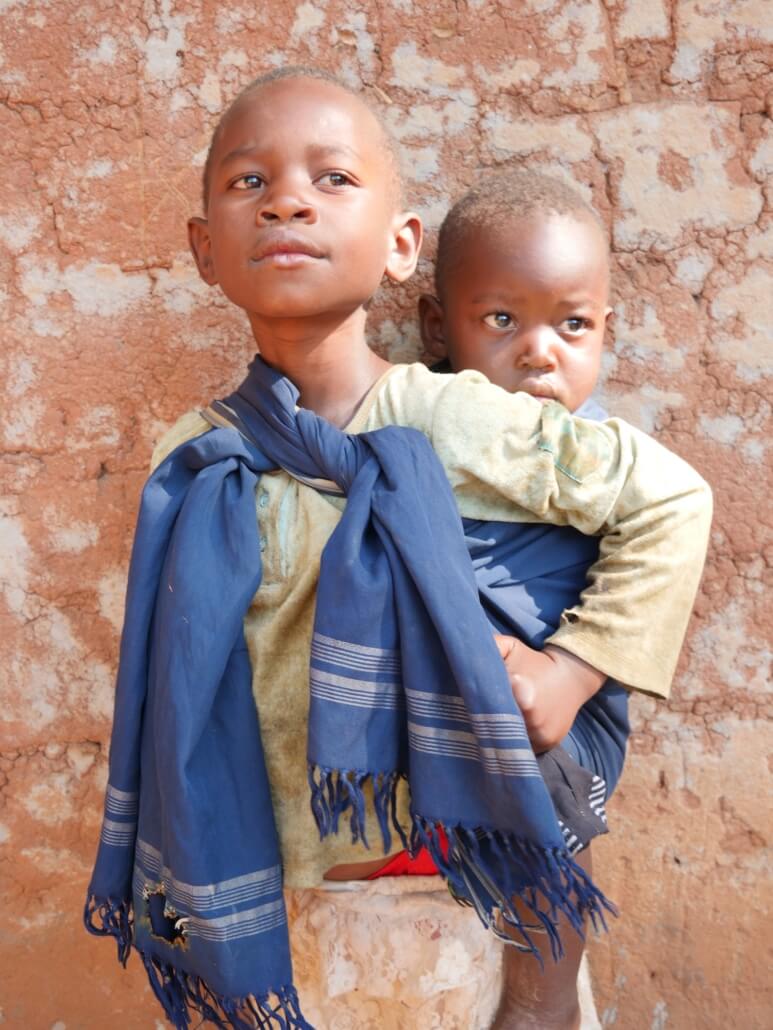
“Since the program started, my children have become very active and brighter than they were before. I want them to get enough education — as much as they want. I feel so happy and proud when I look at my family, especially my children, because they are always happy and healthy.”
– Felista Chotamasege, RCP mom
When you learned you were eligible to obtain an EarthBox, what changes did you make to be able to use the technology?
I was very happy and excited to obtain the EarthBoxes because since the beginning I thought that they would be very helpful in providing vegetables continually with no long distance searching for them. And that is what happened – we get vegetables every day and have them every time we need to cook. Before receiving the EarthBoxes, I built a table from trees outside to place the EarthBoxes on. And when they arrived, I watered them every day as instructed and I got good results. I now have tomatoes, lettuce, and cucumbers.
If you have been using the clinic services in Ipalamwa, how are they different from medical services available before the clinic opened?
Everything is conducted professionally at the Ipalamwa General Clinic. Before prescribing any medication, they first discover what a patient is suffering from and make a diagnosis. Then, they treat the patient based on that, by providing the appropriate and correct medicines for the disease. This is not the case at other dispensaries in the village since they do not have enough equipment for diagnosis.
When you learned about hand-washing stations, what did you decide to do at home? What did you do to convince your family to practice good hygiene?
When I first learned about the hand-washing station and washing hands with soap and water, I decided to share the knowledge with my husband and my children. I told them that it was important to wash our hands with soap and clean water as many times as we can in order to prevent diseases. I also decided to follow up, especially with my children, to make sure they wash their hands during important times like after using the toilet, before and after cooking, and after they come from playing with their friends. I’m happy that my husband was very supportive of this and we are helping each other to assist our children. Now all of our children know how to use the handwashing stations with little supervision. Since we started to be serious with washing our hands with clean water and soap, we have become so healthy because we are not suffering from regular diseases that we used to get. I believe the hand-washing stations are very helpful.
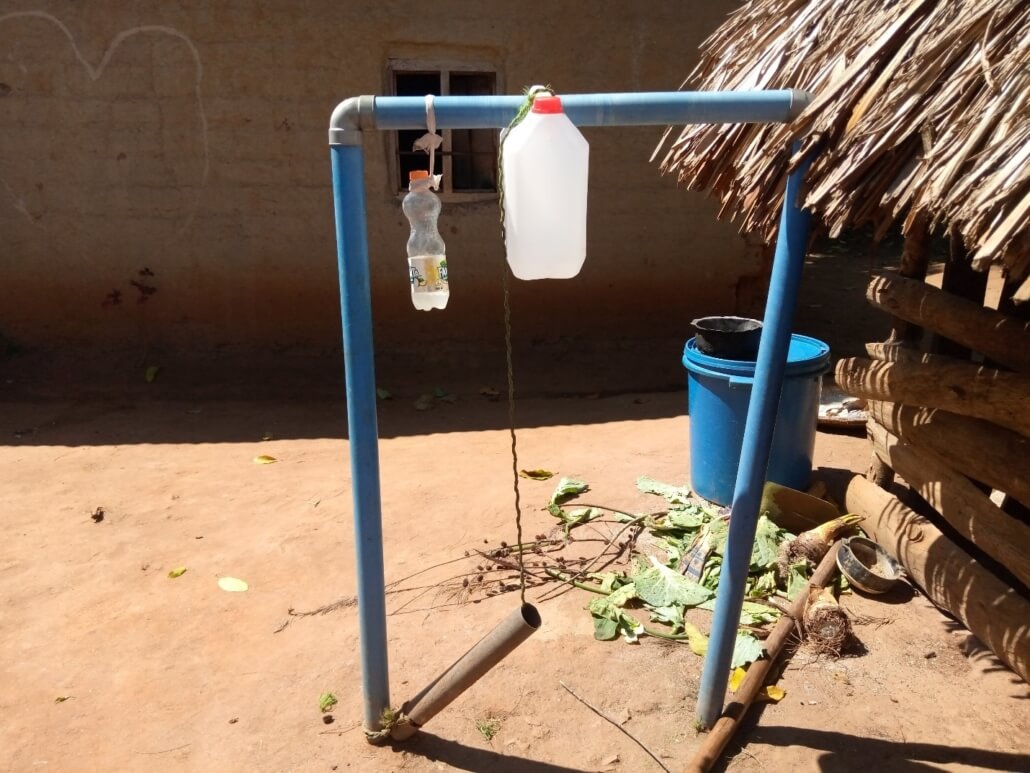
Do your children eat Rise Against Hunger meals at school? Have these meals been important to your family’s nutrition?
The meals are very important and helpful to me and my children. My youngest two children, Loveness and Joseph, and I eat the meals twice per day at home and the rest of my children eat them twice a day at school. The meals are important because they have a variety of nutrients which are very important for us to consume and we cannot find them easily in our area. The meals help me as a mom to produce enough breast milk for my son and my children’s weights are really satisfying. Also, my three oldest children, who are getting the meals at school, have become very active nowadays, which is really encouraging. We always eat three meals per day, which commonly include ugali, beans, cassava, sweet potatoes, sardines, and meat when it is available and we can afford it. We eat vegetables every day. As for fruits, we mainly eat avocados and bananas depending on the season. My children’s favorite food is the Rise Against Hunger meals. They like them so much and they never get tired of them.
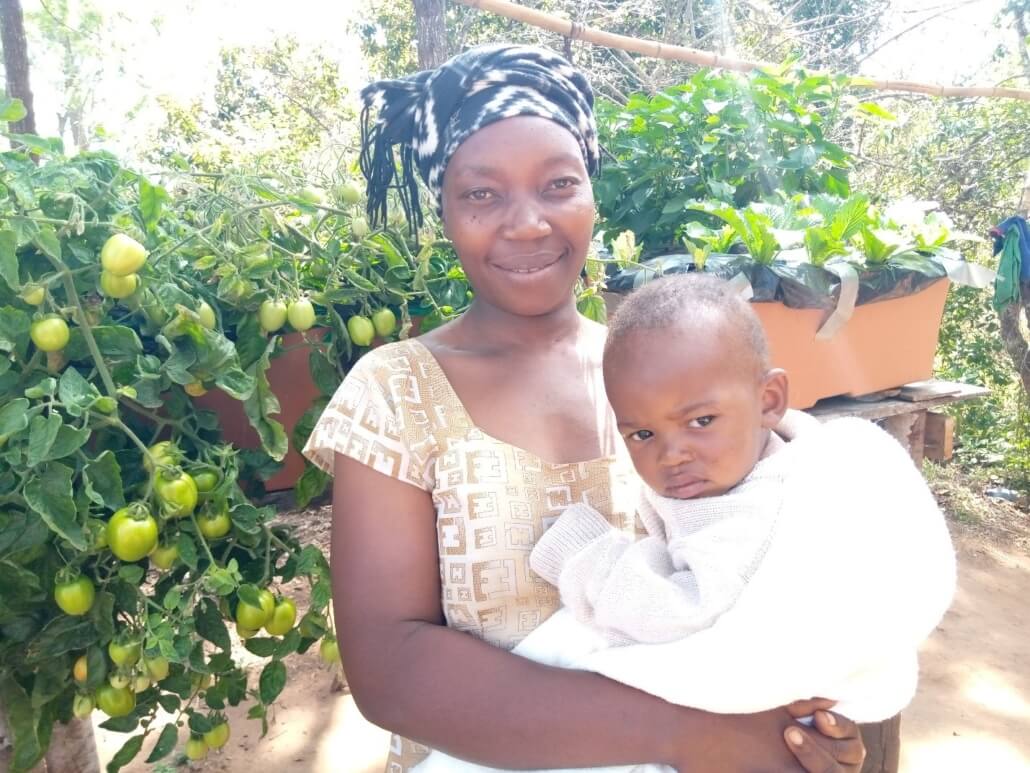
“My children’s favorite food is the Rise Against Hunger meals. They like them so much and they never get tired of them.”
– Felista Chotamasege, RCP mom
What are the personal changes you’ve made in your life since joining RCP that have resulted in better health for you and your children? What are you doing differently now?
We never knew how important it was to have the hand-washing station, but after the program and the workshop, I came to realize that it is very important to wash our hands with soap and water. Using the handwashing station is easy. We used to not wash our hands regularly, but now we wash our hands with clean water and soap all the time. Also, I have learned about staying clean and changing my baby’s diaper as soon as it gets dirty. Formerly, I did not know the importance of this.
As a mother, I try my best to make sure I provide a variety of foods for my children so they become healthy. If they always ate the same food, they would lose their appetite to eat. I also make sure that they wash their hands frequently. When I have time, I play with them and sing songs to them, especially the little ones.

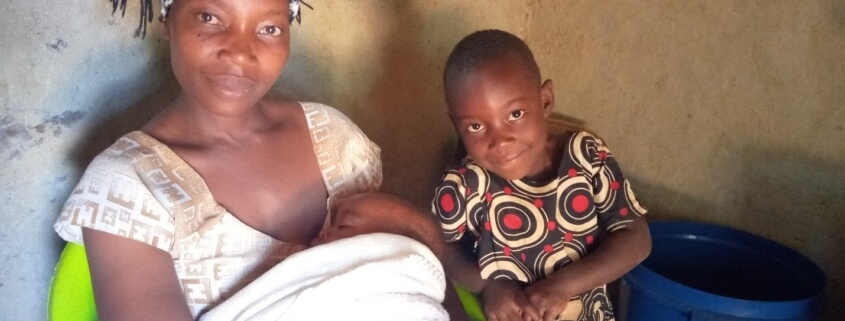
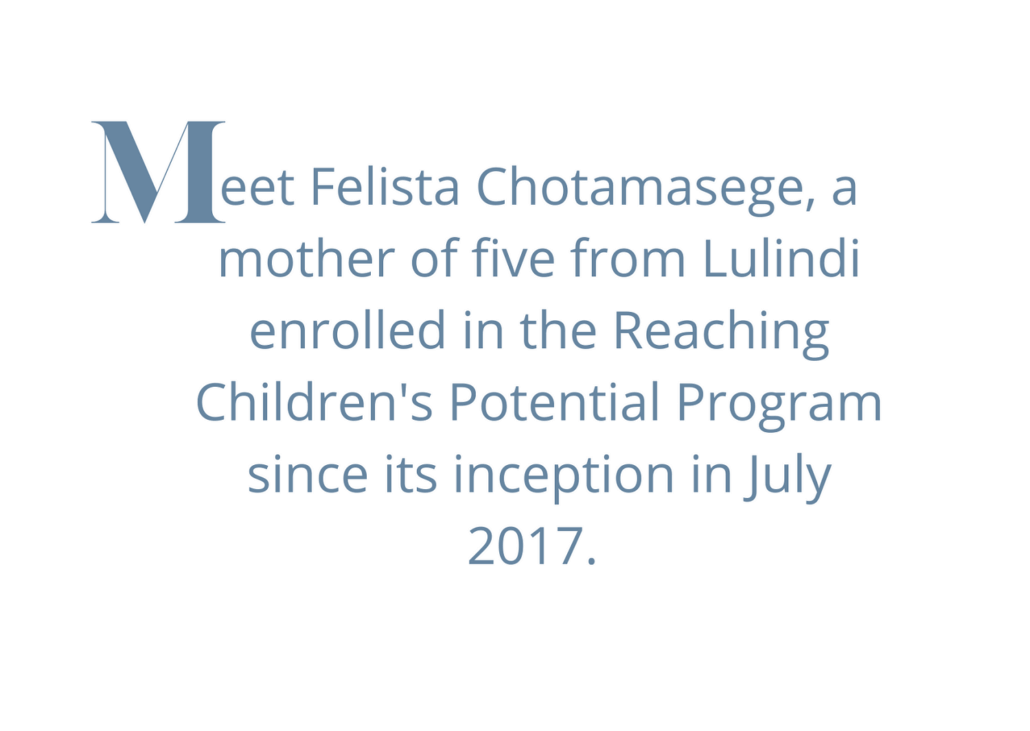
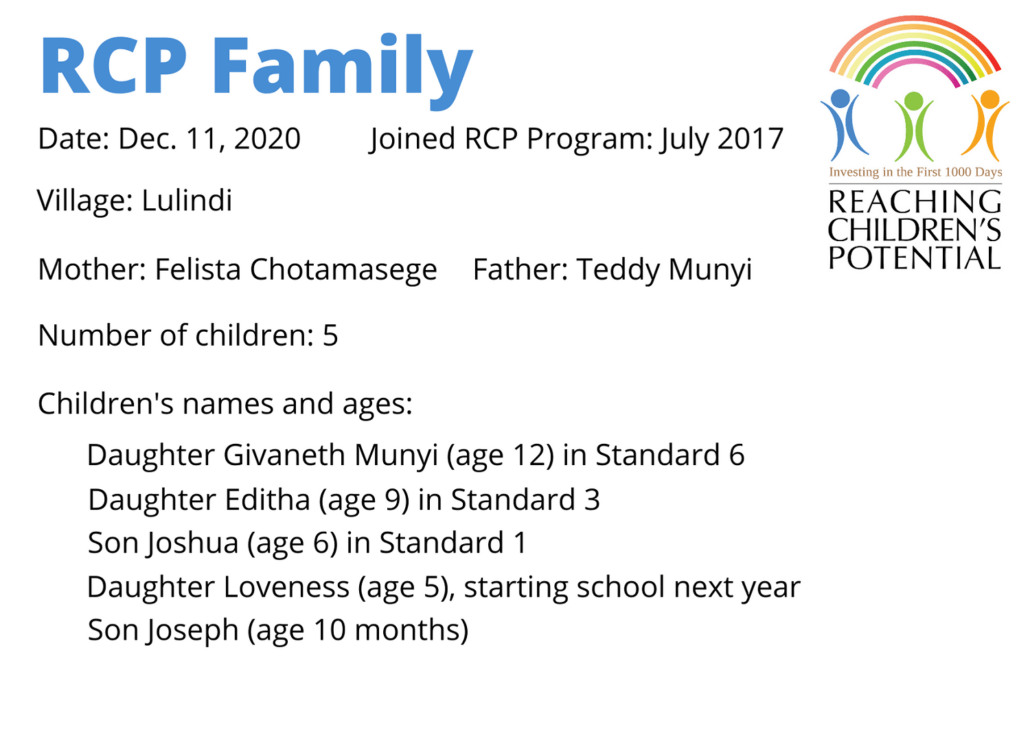
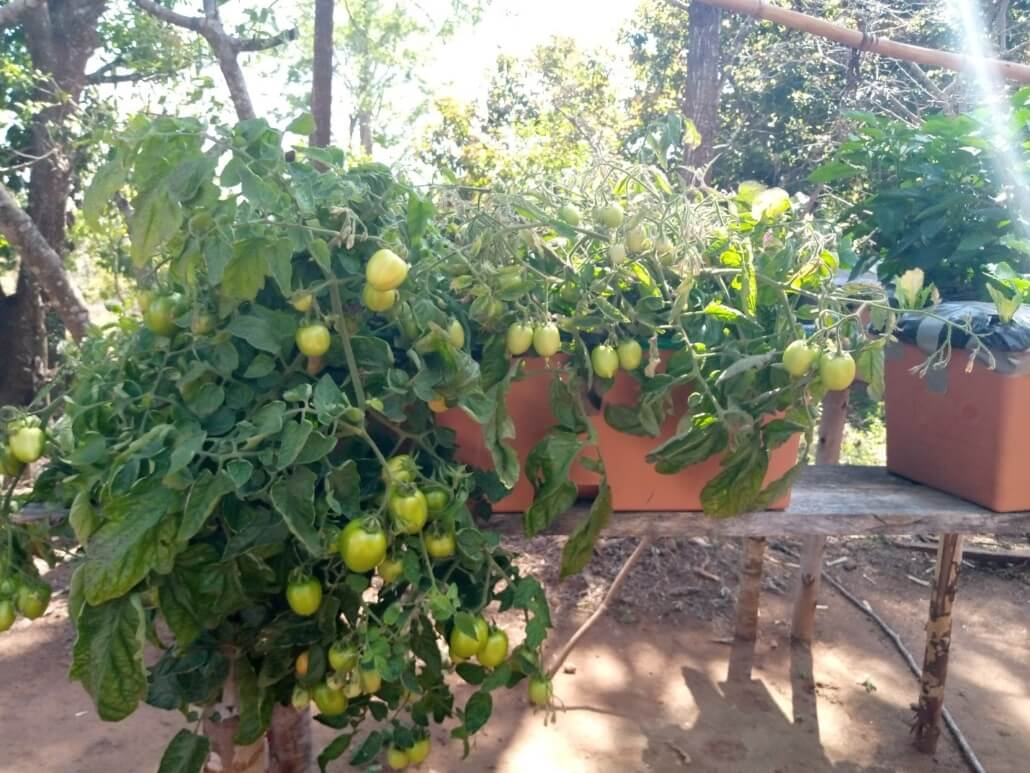
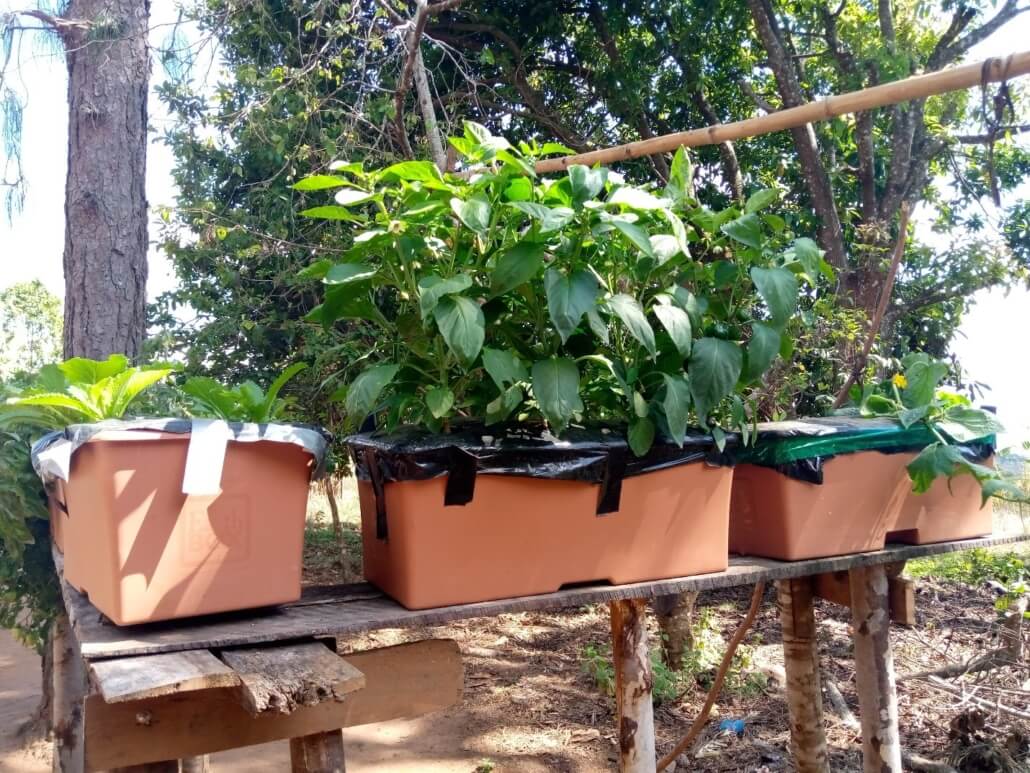


Leave a Reply
Want to join the discussion?Feel free to contribute!